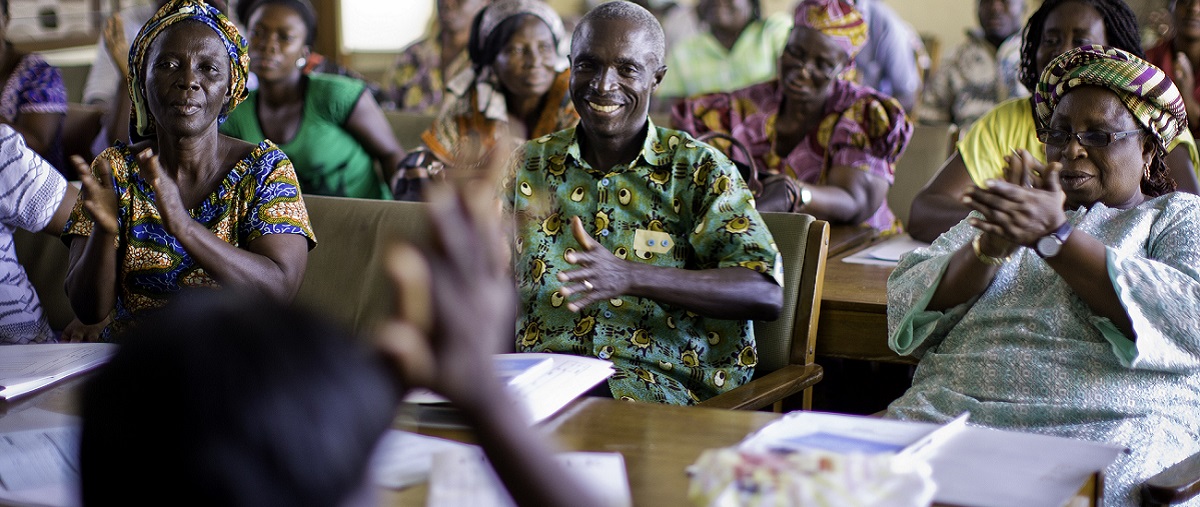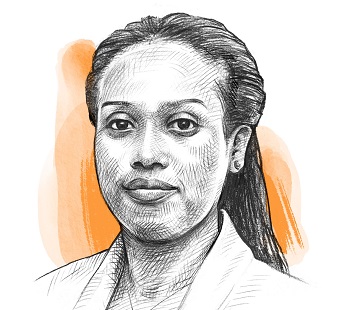L'Initiative – AIDS, Tuberculosis, Malaria

Objective
-
€ 38,8m/yearBUDGET
-
18/11/2011PROJECT START
L'Initiative is France’s operational tool for global health and its indirect contribution to the Global Fund to Fight AIDS, Tuberculosis and Malaria.
Its major innovation lies in the fact that it improves coordination between bilateral and multilateral operating methods for the achievement of France’s objectives. In this respect, L'Initiative is part of the more general framework of France’s global health priorities.
Since it was set up in 2011, it has established itself as a key actor in the fight against the three pandemics. As a technical assistance mechanism recognised by its beneficiaries and supervisory administrations, it initiated a scaling up in 2017.
![]() Consult L'Initiative 2018 at a Glance
Consult L'Initiative 2018 at a Glance
In 2019, L'Initiative team addressed new challenges: ramping up of the mechanism (with an increase in the annual budget from EUR 18m to EUR 25m) and participation in the organisation of the Global Fund’s 6th Replenishment Conference (Lyon, 9 and 10 October 2019).
For further reading: New momentum for the 5% Initiative
France, which hosted this event for the first time, had set an ambitious objective: highlight the results achieved thanks to Global Fund grants in countries and succeed in mobilising donors to ensure there is sustainable financing to fight against pandemics over the next three years.
 Find out more about the Global Fund: www.theglobalfund.org
Find out more about the Global Fund: www.theglobalfund.orgThe 5% Initiative: two operating methods to increase the effectiveness of Global Fund grants
L'nitiative operates in recipient countries, in particular in French-speaking countries, to improve the effectiveness of Global Fund grants. It implements its action using two complementary operating and financing methods:
• The Expertise Channel, which mobilises short-term expertise to meet the ad hoc needs of countries;
• The Projects Channel, which finances long-term projects that are complementary to Global Fund grants via a process of two calls for projects a year.
The Expertise Channel: a response to one-off needs for high-level expertise
The purpose of Channel 1 is to respond to one-off requirements for technical assistance in eligible countries for the support of implementation, governance, monitoring/evaluation, design or impact measurement relating to Global Fund grants. These demands for expert missions can be submitted all along the year. They are approved by L'Initiative steering committee and implemented by Expertise France and its partners.
In 2017, L'Initiative team launched 78 technical assistance missions, i.e. 34% more than in 2016. In the context of these missions, it has mobilised varied and customised expertise in 36 countries, either ad hoc or residential, for periods ranging between a few weeks to a year.
The Projects Channel: long-term project financing
Channel 2 finances projects for 2 to 3 years. They are sometimes multi-country, are complementary to Global Fund grants, and address either the programmatic needs or structural problems of recipient countries. The grants are allocated through a competitive call for projects mechanism. This second operating method is recognised for its responsiveness, its capacity to adapt to the needs of countries, the quality of the expertise mobilised and the attention it pays to civil society.
Ten projects were selected through two thematic calls for projects in 2017. In line with the mandate of the L'Initiative, the Steering Committee decided to support a wide range of stakeholders in 21 countries: international NGOs, French and foreign research institutes, foundations, national disease control programmes, local civil society associations and small entities.
Through this financing, initiatives will be launched or strengthened and may subsequently be included in national programmes or scaled up by the Global Fund in the countries concerned.
Below is the playlist with all the videos of L'Initiative ![]()
Measuring the impact of projects
Three years after the first call for projects, it is possible to measure the impacts of projects that reached completion in 2016.
• The multicentre clinical study conducted by the International Union Against Tuberculosis and Lung Disease in 9 French-speaking African countries has contributed to developing WHO recommendations on the short-course treatment for multi-drug resistant tuberculosis.
For further reading: For a short-course treatment for multi-drug resistant tuberculosis
• In the Democratic Republic of Congo, the advocacy actions conducted by Médecins du Monde (MDM) have reduced by two-thirds the average cost of an HIV service in North Kivu Province: in view of this impact, the Global Fund has undertaken to replicate the approach in the Kinshasa and Lubumbashi provinces.
• In Senegal, the ACCESS project implemented by Handicap International has triggered dynamics for greater account to be taken of people with disabilities in the response to HIV and has initiated a study that will provide information about HIV prevalence among people with disabilities nationwide.
 Find out more: www.initiative5pour100.fr
Find out more: www.initiative5pour100.fr
5% Initiative news
How to mainstream gender into technical expert missions?
To mark International Women’s Day 2019, L'Initiative presented its Gender webinar. It has been designed for technical experts to allow them to take gender into account in their technical assistance missions.
L'Initiative Gender webinar comprises four modules which are available below – an introduction and presentation video, a “Gender and Pandemics” module, a “Gender and Type of Support” module and, finally, a “Gender and Mission Methodologies” module. It will be gradually deployed during an initial pilot phase in the course of 2019. A user memo (in French) can be downloaded here.
• “Gender and Pandemics” module: download in PDF
• “Gender and Type of Support” module: download in PDF
• “Gender and Mission Methodologies” module: download in PDF
Fight against malaria: focus on the REACT project
Malaria vector control is mainly based on the mass distribution of long-lasting insecticidal nets (LLINs). However, their effectiveness is now threatened by the development of Anopheles vector resistance to Pyrethroid insecticides.
In this context, since 2016, the Institute of Research for Development (IRD) has been conducting an operational research project on the new vector control strategies. The REACT project, which is financed by Expertise France with EUR 1.5m, is being implemented in Burkina Faso and Côte d’Ivoire. It aims to study the benefit of the implementation of 4 new anti-vector strategies, in addition to impregnated nets, on malaria transmission and the onset of the disease, i.e. insecticide paint, larval control, the use of ivermectin, and information, education and communication among populations.
Since 2016, 57 villages in Burkina Faso and Côte d’Ivoire have been identified and are participating in epidemiological and entomological investigations.
Feedback from the strategic assessment of the L'Initiative
In the second half of 2017, the Ministry for Europe and Foreign Affairs launched a strategic assessment of the L'Initiative with the aim of improving public action and accountability towards French taxpayers. It has been conducted by an independent consulting firm and highlights the relevance of the mechanism and its effectiveness in terms of strengthening the health systems of recipient countries. It also emphasises the complementarity of its actions with the programmes of the Global Fund to Fight AIDS, Tuberculosis and Malaria.
Find out more: read the article
 The recommendations from the assessment are available on the MEAE website
The recommendations from the assessment are available on the MEAE website
Global Fund Replenishment Conference
In a context of the potential resurgence of epidemics and uncertainty over health financing, on 9 and 10 October 2019 in Lyon, France hosted the Replenishment Conference of the Global Fund to Fight AIDS, Tuberculosis and Malaria. L'Initiative, which works to facilitate access to Global Fund financing and increase its effectiveness, is finalising a new strategy with four priority strategic areas.
Expertise France/L'Initiative, in partnership with the Civil Society Institute for Health in West and Central Africa and with support from UNAIDS, organised a session on the prospects and ambitions of African civil societies at the next Global Fund financing cycle.


